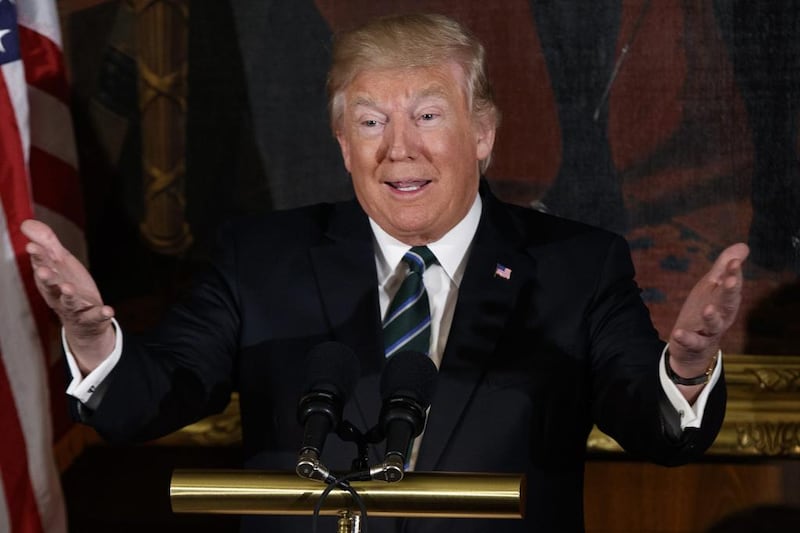ABU DHABI // Amal Al Ameri had long looked forward to studying at Harvard University.
She and two friends had chosen the institution for a three-month summer course this year out of a desire to stay in a country they had long admired.
Now they are looking elsewhere.
They are some of the Emiratis turning down the chance to visit the United States because of the perception that its immigration policy is singling out Muslims.
The UAE is not one of the six countries whose citizens were temporarily banned from visiting the US in the most recent executive order from president Donald Trump. The ban was blocked on Wednesday by federal judges.
Still, the prevailing rhetoric and sudden legal changes worry Ms Al Ameri and her friends. The 24-year-old said she believes the US is still safe, but many of her friends will no longer go.
“Me and two of my friends were going but they both backed out following the Trump ban,” she said. “My other friend’s parents were too scared and didn’t allow her to go..”
Despite the decision, Ms Al Ameri is hopeful that she will still visit the US.
“I am not very political so I am not aware of the politics and US foreign policy,” she said. “But I think the UAE has good ties with the US and that as long as I follow the rules, then I’ll be safe.”
Al Waleed Al Adawi, a father-of-five, has reluctantly agreed to send his 16-year-old son to the US for special studies, but will not allow his other children to follow.
“My son is dyslexic and unfortunately the best centre for dyslexia is in the US,” he said.
His daughter, 18, will be going to Canada.
“When my daughter asked to go the US, her mother said, ‘no way’.”
The US is no longer a safe environment, said Mr Al Adawi, who graduated from a US university in 2001.
Peter Davos, managing director of Hale Education Group, an independent education consultancy focusing on US university admissions, said he had heard concerns from prospective students, but that he has not seen a decline in Emiratis attending US universities.
In 2014, there were 3,267 Emirati students studying in the US.
“We have not seen anybody not sign up or had any of our many students say, ‘We don’t want to go now’,” he said.
“We have heard concerns. Definitely there are concerns and a little bit of confusion on what comes next.
“But I think everybody should be reassured by how the courts have handled the situation, which has been immediate and very, very effective.”
Mr Davos said the US remains the best option for students.
“If you look at the UK, which is traditionally the second most popular destination, what they have done there is way worse compared to what Trump is proposing to do,” he said.
“There, you have a complete crackdown on student visas and the ability for students to work and remain in the country.
“It has become virtually impossible for non-EU students to remain in the UK past the duration for their studies, and with Brexit, even EU students’ future there is very uncertain.
“Whereas in the US they have extended the period of time a student can work on their student visa to up to three years through the [optional practical training] programme.”
In January, when Mr Trump first signed a ban on travellers from Iran, Iraq, Syria, Sudan, Somalia, Libya and Yemen, some Arab and African high school pupils hoping to study in the US said they began to harbour reservations.
Priya Babel, head of the counselling division at Intelligent Partners, a student counselling and teacher recruitment agency, on Thursday said: “I have not really seen a reduction in Emirati student applications to US universities.
“However, there is some degree of uncertainty among the expat Arab students, particularly students coming from the visa regulated countries who are exploring alternate study destinations.”
salnuwais@thenational.ae






